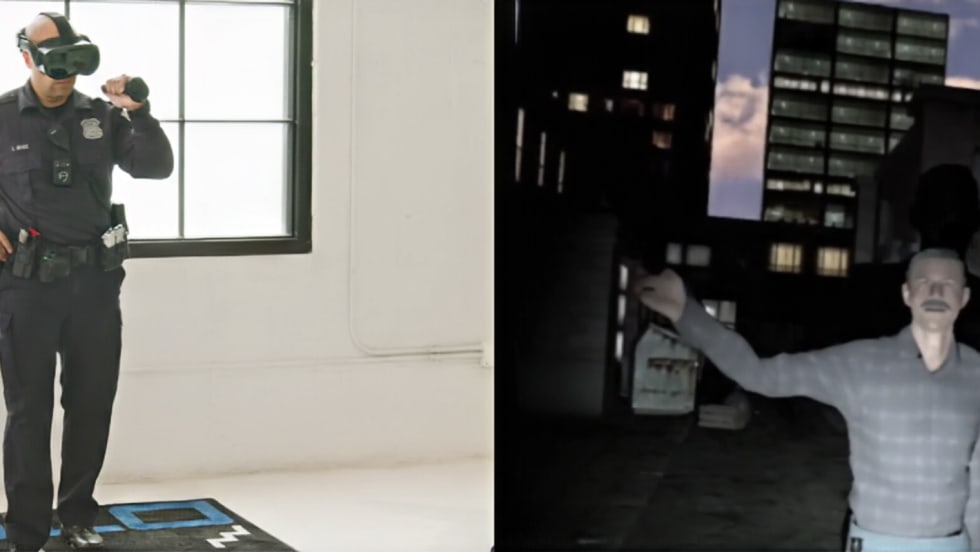Four hours? Six hours? How much sleep are you getting? When you are in law enforcement, the answer is most likely "not enough." This is an occupational hazard that arises from having compressed schedules, working overtime, attending court, working on days off, and struggling to fall asleep after stress-filled shifts.
We all know that adequate sleep is essential for our health and our performance at work. But, how bad is bad sleep and what can we do about it?
Sleep Issues are Big Issues
Several years ago I asked Dr. John Sullivan, a highly regarded clinical sports psychologist and applied sports scientist, to speak with my teammates in SWAT. He taught us the science of increasing performance, improving overall health, and maximizing recovery as applied to professional sports teams and elite military units. During the meeting, Sullivan conducted an informal poll among the attendees and discovered that our team averaged 5.5 hours of sleep per night.
This was not a revelation because most people in law enforcement probably average 4 to 6 hours of sleep between shifts. However, it was quite a revelation when Sullivan explained that men who sleep 6 hours or less for three or more days in a row experience a significant dip in their testosterone levels. Sleep-deprived men end up with testosterone levels that approximate the levels found in women their age, which is about one-third of a man's healthy testosterone level. We also learned that sleep-deprived women experience a drop in their own testosterone levels.
In essence, Sullivan was telling us that the best performance-enhancing drug (PED) is getting enough sleep per night as consistently as possible. He added that many professional athletes and Olympians, who make rest and recovery as much of a priority as their physical training, consistently sleep 7 to 10 hours per night.
Sullivan further explained that proper, sufficient sleep makes such a difference because it improves cognitive function, sharpens focus, enhances emotional regulation, elevates physical performance, compresses reaction times, increases resilience, detoxifies the brain, reduces inflammation, improves brain health, and improves overall health.
A Law Enforcement Epidemic
Many of you may be thinking that it is impossible to get 7 to 10 hours of sleep per night on a consistent basis. As you are thinking this, there is something very critical to consider.
In December 2011, the Journal of the American Medical Association (JAMA) published an article titled "Sleep Disorders, Health, and Safety in Police Officers" that detailed a study and a survey regarding sleep disorders and the lack of sleep in North American police officers. The findings showed that 40.4% of the 4,957 police officers surveyed screened positive for at least one sleep disorder and that 33.6% of the police officers surveyed screened positive for obstructive sleep apnea. These statistics reveal that sleep disorders are an epidemic in the law enforcement profession.
When you are thinking about your own sleep habits and issues, consider the possibility that an actual sleep disorder may be a factor. Please consider being evaluated for a sleep disorder and getting professional help.
Sleep Hygiene 1.0
Whether you have a sleep disorder or not, you can improve your sleep despite the complications of the law enforcement lifestyle. You can do this by practicing what is known as sleep hygiene.
I encourage you to research this concept for tips and ideas that can work for your sleep needs and your sleep issues. In general, though, sleep hygiene is the set of healthy and prudent practices that assist you with getting ready for sleep and staying asleep.
These include:
Avoiding caffeine, alcohol, and exercise before bed
Shutting off all electronics at least 30 minutes prior to bed
Dimming the lights at least 30 minutes prior to bed
In addition, I choose to stay away from social media, the internet, and television news before bedtime. There is just too much negativity out there that makes it impossible to quiet your brain and relax your body.
Sleep Hygiene 2.0
Although basic sleep hygiene practices are helpful, they are not enough to address the sleep issues that affect those in law enforcement. You need to take sleep hygiene to the next level.
To take sleep hygiene to the next level:
Remove all electronics from your bedroom. Go so far as to keep your alarm clock where you can hear it but not see it.
If you are unwilling/unable to remove your electronics, place thick tape over any light indicators.
Darken your room completely by eliminating all light. Use blackout curtains or the old morning-watch trick of covering your windows in tinfoil.
Keep your bedroom at 68 degrees when you are sleeping.
Have a Plan
To officers who have been programmed to meet life's demands on 4 to 6 hours of sleep per night, proper sleep may seem like a pipe dream. But, proper sleep makes us all better in every area of our lives, so working at it is worth the effort.
Create a sleep improvement plan. Start by getting better sleep on your days off. Then begin going to bed 15 minutes early on your work days. Increase your time in bed by 15 minutes a day every week or two.
In addition to working on improving the quantity of your sleep, utilize good sleep hygiene to focus on the quality of your sleep. These actionable methods will move you toward being more well rested which will, in turn, help you to manage the stresses of your extremely demanding occupation.
Apply the same urgency to improving your sleep that you do to your workouts. Sleep is a legal PED for law enforcement. And you need to enjoy the benefits.
George Ryan is a sergeant with a major Southern California agency. He spent 17 years in SWAT, and he created his department's Peak Performance and Recovery Training program.











